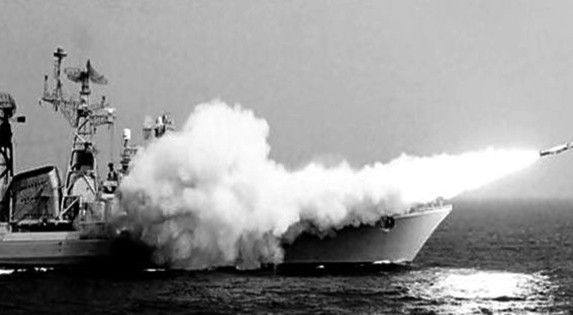Shortest war in the history of India
The Indo-Pak 1971 war – an Indian Naval perspective.
The shortest war, and the most successful Indian naval mission with no Indian casualties.
The date was 3rd December 1971, the time approximately 5.40 pm IST, after failed attempts by PM Indira Gandhi to gather support for Bangaldesh from the United Nation, and specifically President Nixon, Pakistan Air Force (PAF) launched its eleven pre-emptive air strikes, named ‘Operation Chengis Khan’, targeting north-western India. On the same evening, PM Indira Gandhi announced that this act was a declaration of war, and Indian Air Force retaliated with an attack, on that very same evening. This act started, what will be known as the shortest war in the history, lasting all of thirteen days, the Indo-Pak war of 1971, where the Indian armed forces launched a huge coordinated effort in assaulting Pakistan from air, land and seas.
The Indian Naval Headquarters (NHQ), in Delhi as well as the Western Naval Command planned an offensive attack against the weak Pakistan Naval army, deciding to attack the Karachi port. The mission was to block the Pakistan naval vessels from moving towards Chittagong port, and ensuring maximum damage in Karachi port, hitting its oil refineries. Chittagong port in Bangaldesh, was already blocked by INS Vikrant, and the other Eastern Command fleet, ready for action. The attack was planned in several stages, where the first strike group comprising of three Vidyut-class missile boats, INS Nirghat, INS Nipat and INS Veer would launch the first surface to surface missiles. These missile boats were carrying four Soviet made missiles with a range of 48 nautical miles, and were being led by Squadron Commander, B.B. Yadav, of the 25th Missile Boat Squadron. This operation was coined, ‘Operation Trident’. The three missile boats along with the Western fleet vessels, who had air and under-water attack and counter-attack capabilities, would depart for Karachi on 3rd December 1971, under the cover of darkness. Due to their limited fuel capacity, the three missile boats were towed by the Western Command boats, towards their target, port of Karachi. The support vessels towed them up to 250 nautical miles, short of Karachi port. The Indians were aware that the Pakistanis had no night radar tracking or night-bombing capabilities, and used this knowledge to their advantage, ensuring the attack took place between dusk and dawn. At...
The shortest war, and the most successful Indian naval mission with no Indian casualties.
The date was 3rd December 1971, the time approximately 5.40 pm IST, after failed attempts by PM Indira Gandhi to gather support for Bangaldesh from the United Nation, and specifically President Nixon, Pakistan Air Force (PAF) launched its eleven pre-emptive air strikes, named ‘Operation Chengis Khan’, targeting north-western India. On the same evening, PM Indira Gandhi announced that this act was a declaration of war, and Indian Air Force retaliated with an attack, on that very same evening. This act started, what will be known as the shortest war in the history, lasting all of thirteen days, the Indo-Pak war of 1971, where the Indian armed forces launched a huge coordinated effort in assaulting Pakistan from air, land and seas.
The Indian Naval Headquarters (NHQ), in Delhi as well as the Western Naval Command planned an offensive attack against the weak Pakistan Naval army, deciding to attack the Karachi port. The mission was to block the Pakistan naval vessels from moving towards Chittagong port, and ensuring maximum damage in Karachi port, hitting its oil refineries. Chittagong port in Bangaldesh, was already blocked by INS Vikrant, and the other Eastern Command fleet, ready for action. The attack was planned in several stages, where the first strike group comprising of three Vidyut-class missile boats, INS Nirghat, INS Nipat and INS Veer would launch the first surface to surface missiles. These missile boats were carrying four Soviet made missiles with a range of 48 nautical miles, and were being led by Squadron Commander, B.B. Yadav, of the 25th Missile Boat Squadron. This operation was coined, ‘Operation Trident’. The three missile boats along with the Western fleet vessels, who had air and under-water attack and counter-attack capabilities, would depart for Karachi on 3rd December 1971, under the cover of darkness. Due to their limited fuel capacity, the three missile boats were towed by the Western Command boats, towards their target, port of Karachi. The support vessels towed them up to 250 nautical miles, short of Karachi port. The Indians were aware that the Pakistanis had no night radar tracking or night-bombing capabilities, and used this knowledge to their advantage, ensuring the attack took place between dusk and dawn. At...




